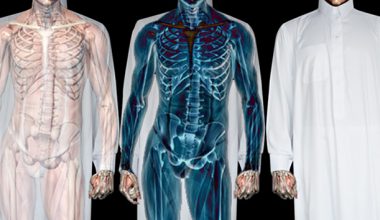
Ramadan is now on our door steps in Kuwait along with around two million Muslims around the world who celebrate this holy month. It is the ninth month of the Hijri calendar and it is the month of fasting. We all know that fasting is one of the five pillars of Islam and it is compulsory for every able Muslim adult. We also know that there are certain categories of people who are exempt from fasting.
One of the challenges that face healthcare professionals managing people with Diabetes is that many patients will make a decision to fast without informing or discussing this with their medical provider. It is true that for some individuals it is actually very healthy to fast potentially improving their condition; doctors have long prescribed fasting as a prescription for certain ailments. However, for many people and I am focusing on those with Diabetes, fasting is not recommended and can in fact be a huge detriment to a person’s health.
Unfortunately, and this is not any one person’s fault, many Muslims with diabetes are unaware of the risks associated with fasting and passionately fast despite their doctor’s recommendations. Just to give some background to the issue, a large, international, population-based study, called the EPIDIAR study, was conducted in 13 countries on 12,243 individuals with diabetes who fasted during the month of Ramadan around the world.
The results showed that during Ramadan, 42.8% of people with type 1 diabetes and 78.7% of people with type 2 diabetes fasted for at least 15 days. Results also showed that less than 50% of the whole population changed their treatment dose. In regards to complications, the study found an increased risk of acute complications such as frequency of low blood sugar episodes. So what does this tell us? First, that many people with Diabetes fast despite their health condition, second that there is an increased risk of complications, and finally and more importantly that not many individuals adjust their medications during this time which indicates that people with Diabetes are not working closely with their healthcare team.
We cannot say that all people with Diabetes should not fast nor can we say that all people with Diabetes can fast because it is very individual situation and depends on a person’s health condition. In general, people with Diabetes fall under certain risk categories just to name a few, people with Type 1 Diabetes, Type 2 with poor glycemic control (which means that your HbA1c is not at target level), and the elderly are considered at very high risk and are discouraged from fasting by the medical profession. These recommendations come from expert medical opinion, primarily those of the American Diabetes Association.
The reasons for these recommendations are because fasting affects blood sugar levels, and there are certain medications like insulin that need to be taken on a daily basis at the appropriate doses, without which serious complications can occur. Missing a dose for someone with Diabetes is not safe, especially for those being treated with insulin. The main complications encountered during fasting include worsening of glycemic control, increased low blood sugar episodes or hypoglycemia, high blood sugar levels or hyperglycemia, diabetic ketoacidosis (which happens because of a lack of insulin in the blood where the body switches to burning fatty acids and producing acidic ketone bodies that can be life-threatening), dehydration, and thrombosis. As you can see these complications are significant and should not be taken lightly.
I encourage you to speak to your healthcare team if you or a family member has Diabetes to be sure that you are able to fast given your condition. You should ask about your risks, how to manage your condition during Ramadan, how to make necessary medication changes, how to recognize complications, and understand what else you can do so that you don’t put your health in jeopardy.
Wishing you a blessed holy month of Ramadan!
– Dr. Nadine Halawa, Clinical Pharmacist







